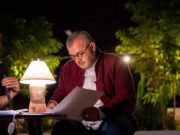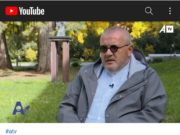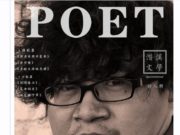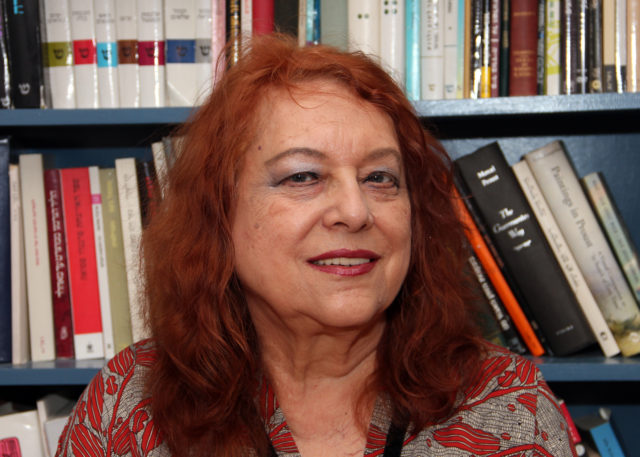Miriam Neiger-Fleischmann is a Hebrew poet, literary scholar, and painter. She was born in Slovakia in 1948. Her parents were Holocaust survivors from Hungary. She came to Israel in 1949 and lives and works in Jerusalem. She studied art at the Bezalel Academy in Jerusalem from 1977–1981. In 2015 she earned a PhD from the Hebrew University of Jerusalem with a dissertation on the poetry of Avigdor Hameiri.
She has published four volumes of poems in Hebrew: Words in a Visual Space (1992), Images Reproduced (1999), Material in No Man’s Land (2007), and Song for Miriam (2018). She has won several prizes. One volume in Hungarian translation, Száműzetés (Exile, 2002, trans. Zsuzsa Zalaba), appeared in Budapest. A volume of poems in English translation, Death of the King and Other Poems (2017, trans. Anthony Rudolf), appeared in Nottingham, England. This volume was also translated from the English into Romanian by Victor Stir (2017).
Pursuing a parallel artistic life as a painter, Neiger-Fleischmann has participated in many exhibitions at home—including the Israel Museum and the Tel Aviv Museum—and abroad, in New York, Paris, Germany, Spain, Hungary, and Slovakia.
Website: www.miriamneiger.com
MY SIGNALS
Summer night over Jerusalem:
In the sky a gloomy plane,
snarling like a lizard in the air,
a mutant dinosaur.
Emergency vehicles tear
the dark night apart with their howling
on a road illumined
to the point of desperation.
The warehouses of suppression are
chock-a-block: words
shower down
and scatter in a lake of memories.
Fear holds you
and stretches like the cosmos.
My body is sunk
in the fat flesh of night.
Decorating space, the stars
are sequins on an eastern veil.
It is hard to be comforted by their glow.
Their cold appearance will absorb my signals
after a hundred light years
and then it will be too late.
FAR AWAY
1)
Standing far away
you can only see the bright side
as from a satellite one sees
the traces of the brush stroke of the universe
in the frozen streams of the North Pole
or the perfect shape
of whirlpools of dust
which cover the whole of China —
the rustle of angels’ wings cannot
sweep it all away
2)
The sorrow was growing inside her
like vapour rises from dry land
which never reaches out and merges
with a piece of the celestial universe, and she knows
that in the nature of her desire
there is already a flaw,
just as separation is the essence of creation.
Better this way than Chaos.
EXILE
I am a poet exiled to fields of colour,
seed words in the furrow of the brush
sprout rhymed lines upon soft canvases
fertilise them with pigments,
make pictures grow.
I am a painter exiled from fields of colour.
I assemble words fallen from heaven
like rebel angels looking for salvation;
I arrange urgent letters on restless sheets,
build spectacles there.
I am a woman exiled from districts of love
to a land of rain colours, to sign-filled spaces.
I am doomed to collect in a charity box
scraps of spirit from reality’s back rooms
to satisfy my soul.
Translated from the Hebrew by the author and Anthony Rudolf

















